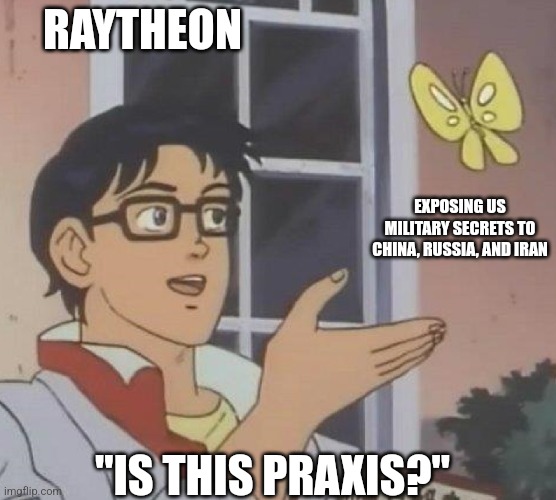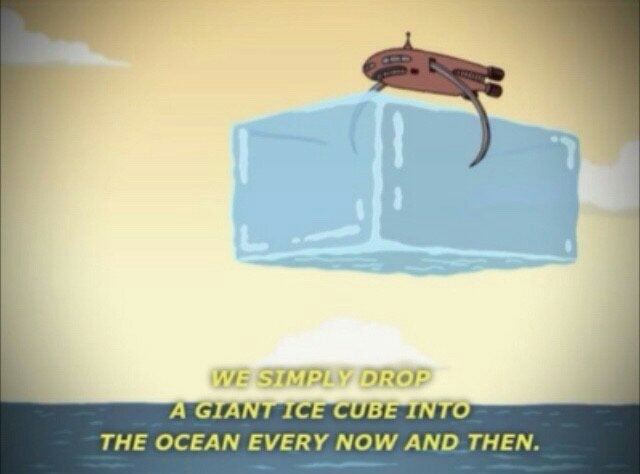- 0 Posts
- 18 Comments

 7·22 days ago
7·22 days agoThey’re just liberals who came out of the political closet?

 7·22 days ago
7·22 days agoNah, you just gave up because you couldn’t keep up. You’ll be waiting a long time to see anyone here change, most of them started out as liberals before realizing what a fucking farce liberalism and capitalism are.
Who knows, maybe someday you can enjoy circlejerking with the comrades too? Ain’t nothing in this world more fulfilling than COMMUNity. It may help jumpstart your journey if you risk reading a book from someone outside of your existing system of beliefs. At least that way, you’ll be better informed to counter the power of our jerking. Start with Parenti.

 7·22 days ago
7·22 days agoNo, we’re corrupt because we don’t just fall in line and say “Russia bad.” More reasons we are corrupt:
T-30 until the rubles hit my bank account (look to other comments for where I made my collection of Xi bucks). No reasonable person would ever give critical support to any nation other than the US because the US is the greatest, most free, most powerful, and most moral country in the world. This forum is a horde of circle-jerking Russian/Chinese bots who simultaneously are ignorant children who freeload off our parents. We’ll never leave the comfort of our echo chamber despite remaining federated with all the shitlib instances. We’ll forever be brainwashed because we are no better than the Nazis, worse even! “Middle” of perfectly accurate horseshoe best! Communists ruin the internet! Communists ruined Reddit, which is why we got kicked off!
Yawn I think that about summarizes all the normal positions they come in with. I’d say that someday they’ll come up with new and interesting arguments and insults, but as a stupid Tankie, I think sharing a toothbrush would be more interesting than anything they’ll come up with in the future.

 2·27 days ago
2·27 days agoI have not seen anything suggesting that said investments are highly conditional or designed to keep the recipients dependent on them indefinitely.
There are examples of them writing off unpaid debt in favor of completing the projects to maintain a good relationship with the countries they are working with. They don’t seem to do this lightly, and sometimes it’s only the interest, not the entire loan, but it does happen. This difference in approach can be easily picked up in western media as well despite them often moving goal posts and not telling the entire story of IMF loan programs compared to BRI programs.
Never travelled on my own dime in my adult life and I’m mid 30s. I often can’t afford to even travel to see family unless they live within a few hours of me. Have been saving up to travel for years now.

 27·29 days ago
27·29 days agoThe definition of Imperialism you are working from is not the same as those replying to you. You are working from the non-Marxist definition of imperialism while others are working from the Marxist definition. From Prolewiki:
Lenin is often credited for having synthesized a Marxist analysis of imperialism with the publishing of his pamphlet Imperialism: The Highest Stage of Capitalism in 1916, most notably on the foundation of the earlier work of John A. Hobson entitled Imperialism: A Study. Beginning with the first paragraph of his pamphlet, Vladimir Lenin wrote that rapid growth of industry and concentration of production in growing enterprises represent the key characteristic of capitalism.[1]
Multiple theorists have updated, deepened, developed or critically engaged with the classical analysis of Imperialism. Other theorists developed different conceptualisations, including most notably Kwame Nkrumah, remaining situated within the framework of scientific socialism. Most recently, the concept of neoimperialism has emerged in the work of Cheng Enfu.
The development of imperialism in the global economy also reinforces a dialectical relationship between core-periphery countries, mainly dependency and subordination of underdeveloped countries to imperialist economies. In conjunction with these developments, new theoretical models were proposed to understand developments, such as dependency theory and world-systems theory.
Lenin’s Imperialism: The Highest Stage of Capitalism for more information.

 9·2 months ago
9·2 months agoAh, I must have misheard it then.

 27·2 months ago
27·2 months agoYeah, but it seemed like he misspoke. In the same sentence, he referred to her as VP Trump.

 1·2 months ago
1·2 months agoI’m lacking sources on it right now that I can recall, but I feel like I read once that this was intentional in some way, the conjoining of “product” and “community.”
If you find it, I’d appreciate a share. Any searches including the two words are poisoned by articles trying to tell you how to turn your brand into a community. Each search is just page after page of that shit.

 8·2 months ago
8·2 months agoThe Onion stopped writing satire years ago and just forgot to tell anyone.

 2·3 months ago
2·3 months agoIt’s shocking how much I have to Google while reading it.
We all go through it, even if it’s just learning terms we’re unfamiliar with. Your other points resonate with me as well. It can take a lot of effort to work through (because there’s so much to read!), but I’ve also found it’s been very rewarding.
Thank you for taking the time to read it. Most people we encounter don’t even bother to engage with anything that opposes their established worldview. It’s not trivial and requires an inquisitive mind. Many people don’t care enough to even try.

 2·3 months ago
2·3 months agoI know this is digging up an old thread, but I’d be interested to hear your thoughts on Blackshirts and Reds?
For me, the historical context provided in this book was very eye-opening and a big part of what led me to dig deeper into how socialism works outside of the anti-communist propaganda I’d been fed throughout my life and formal education.

 1·3 months ago
1·3 months agoI don’t oppose socialism/communism. I simply understand it’s as capable of being manipulated by those in power as capitalism is.
You’re right and this is where we contrast how socialist governments handle corruption vs how capitalist ones do. China is a good, contemporary example to show how a communist party deals with external corruption, creating laws with consequences for corruption that have a meaningful impact on those in charge, meaning everyone in positions of power are less likely to repeat those actions. A CEO who commits financial fraud or oversees a company that commits fraud sees jail time or even execution under extreme circumstances (this happened recently in Vietnam). The company can also be seized by the state so that it continues operating, changing little for the workers, but removing the ability for those at the top to profit from the business any longer. Under capitalist governments, they get a fine that is small relative to their crime, so crime becomes a cost of doing business, which just serves to encourage those crimes.
For internal corruption, the communist parties themselves conduct purges, meaning they review the quality of their members and expel those who are not committed to the values of the party through a democratic process. Members found guilty of crimes can be punished similar to the CEOs. Ineffectual leaders can be removed from power. Effectual leaders (such as Xi and Stalin) can be voted in for much longer periods of time, allowing them to progress long-term projects that are not possible within the term limits often used in liberal states. What checks against corruption do we see for politicians in liberal parties? Charges of corruption are frequently dismissed.
Power can corrupt in all societies, but it’s important we focus on how to deal with that corruption instead of writing everything off because corruption exists. A dictatorship of working people allows the working class to hold everyone accountable in ways that dictatorships of the owner class choose not to.

 8·3 months ago
8·3 months agoSeconded. This takes what’s laid out in ML theory and shows what it looks like in practice from an outsider’s perspective (a US citizen who moved to the USSR). It’s a great read and I found it very enlightening.
It was written in the 1930s, but one of the most important aspects of this account is that it compares and contrasts the lives of people 1) before the revolution, 2) after the revolution, and 3) in a capitalist state in the same time period. Just because it’s old does not mean it doesn’t contain a valuable perspective. Everything written in this is still relevant to today, which you can see for yourself if you give it a shot.

 10·3 months ago
10·3 months agoBlowback is something a different administration has to deal with. Therefore, it’s not our problem!


A hypocritical statement if there ever was one since US sanctions can be considered a violation of international laws. I’m sure the only reason they don’t impose them from the UNSC is because they could (and likely would) be vetoed by other members (and because the US is imposing sanctions on UNSC members.
US rules-based international order is when you can pick and choose which laws apply to your own actions.